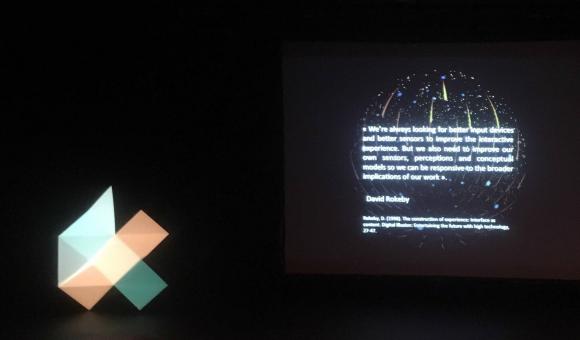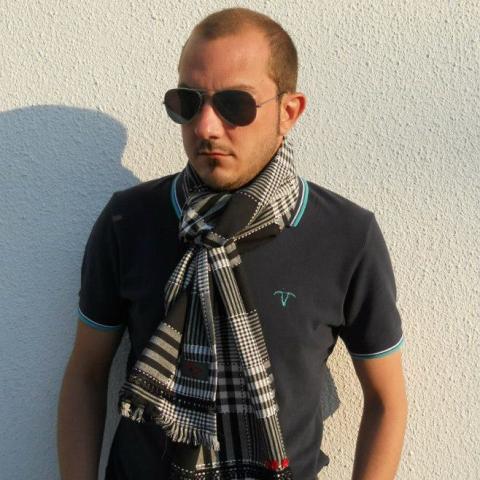
The main topic of this talk was immersion, more specifically immersion by the environment. And technologies that makes it possible to create these environments.
Yan Breleux defines himself as an artist-practitioner; he needs to "get his hands dirty" in the software to find out what he can get and what he wants as a result. This nice Quebec resident's career path ranges from sound to visual; he has a PhD in Music and is a lecturer at the SAT. He talked about a host of technologies he has been able to try out during his artistic creations, many inspired by the vistas of planetariums.
He introduced his theme by explaining that henceforth we create a universe, a language and a culture before writing a story, which takes us back to the basics of Transmedia. But he believes that the limit of screens had to be broken. We now have access to a multitude of tools that allow us to break down the barrier in reality and virtual reality and have increasingly immersive experiences. Sensors, probes, VAR... even mapping is a way of augmenting reality. The challenge for current video game creators is to design systems that make it possible to construct a story through interactions with users.
Robots with artificial intelligence are increasing realistic but still raise certain questions: for having the feeling of immersion, what is important is the possible level of interactivity. We can observe that too much realism leads to a feeling of repulsion. And all technologies have their limits, even if they are temporary while we wait for further developments: a new framework to exceed.
But as we cannot stop ourselves and keep our distance, which is sometimes reduced by the action we can take in these virtual environments, technologies are now the frame to be smashed and humans and their perceptions are at the heart of all immersion... is the ultimate immersion experience not full-scale role-play? Or, more simply, the fact of living fully connected to our real environment. I realise I am drifting towards philosophy again...

